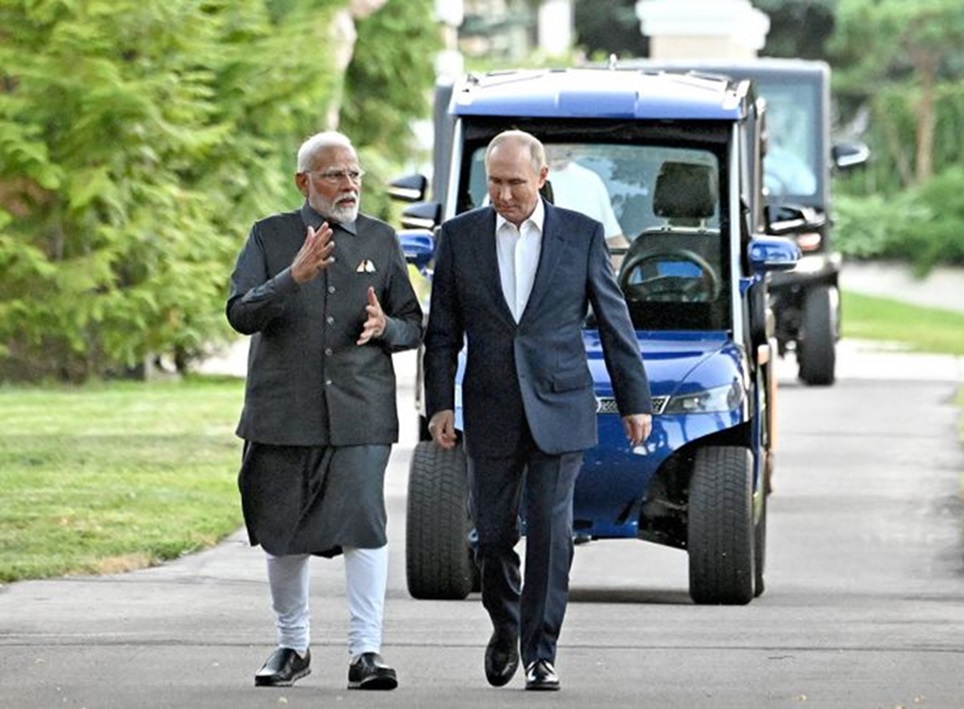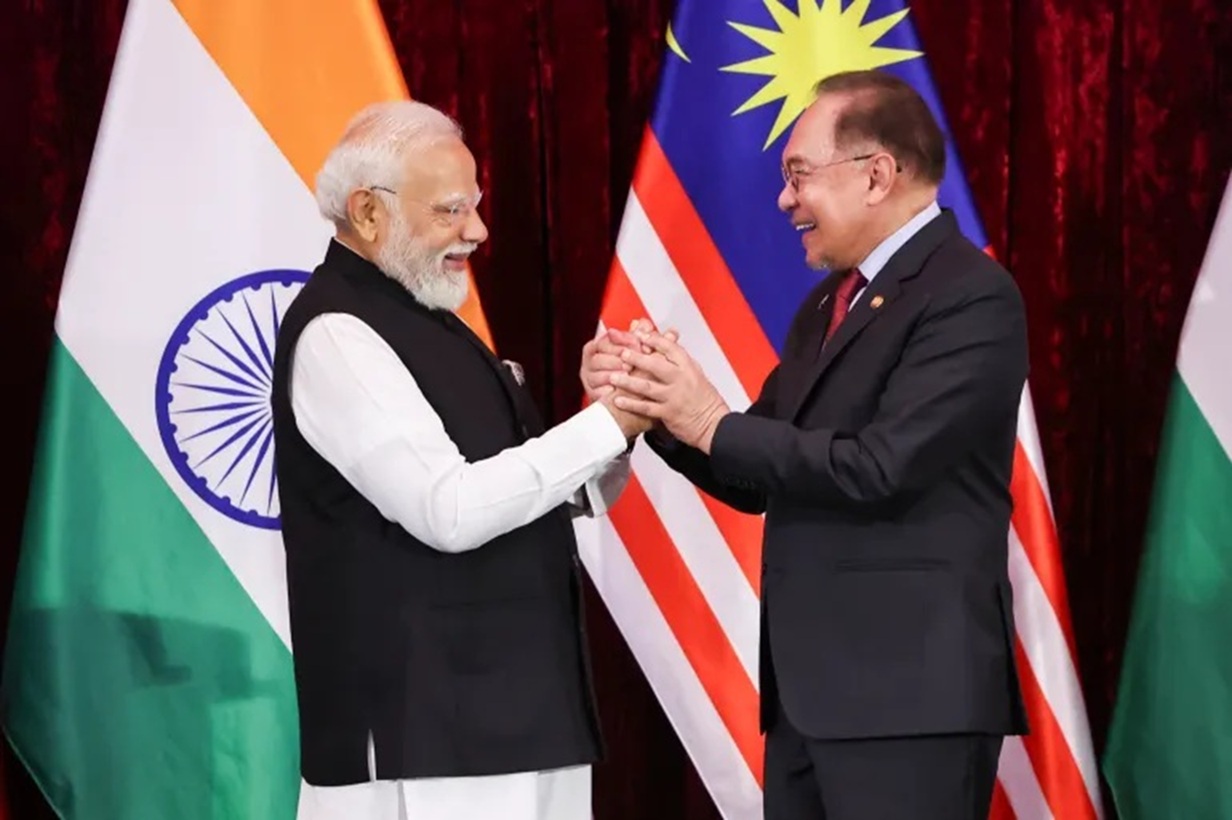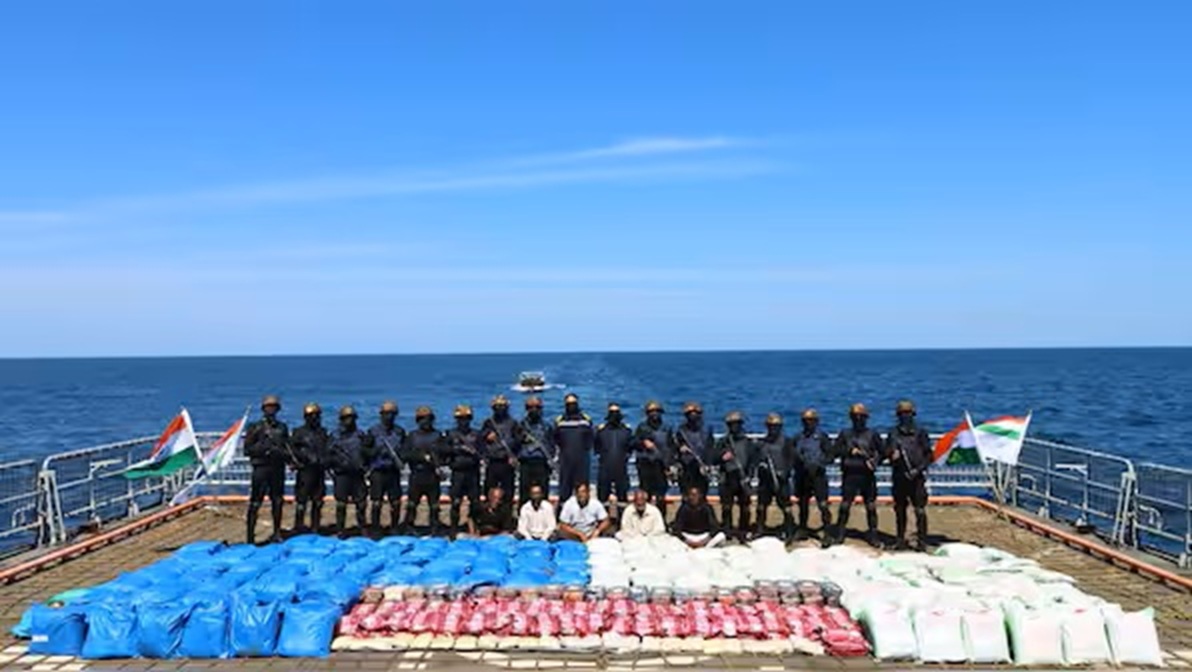The Prime Minister of India Narendra Modi visited Russia on 08 July, the first bilateral visit of his new term in office. This is a relationship with an exceptionally well-oiled institutional historical matrix. Perhaps the quotient of trust is the highest of any bilateral relationship that Moscow manages, despite the global churn of reanimated geopolitical contests, ongoing wars, and other challenges globally that directly impact the two states.
Moscow and New Delhi also have frequent and frank consultations on China-related issues, which are increasingly more salient in the emerging global landscape, with Beijing’s ambitions becoming more evident. More importantly, Russia is the chair of and will be hosting the BRICS+ Summit in true style, with over 200 meetings preceding it. So, both leaders have full plates and a large menu remains open this week.
Modi has just been to a G7 summit in Italy where he met with many leaders, including Ukraine’s Vladimir Zelensky, who considers that New Delhi could play a much bigger role in resolving the Russia-Ukraine conflict, given the special relationship the two countries and leaders have. PM has advocated respect for the UN charter, recourse to dialogue and diplomacy, and maintains that this is “not an era of war” and peace must be sincerely pursued. Ideals and morals even in foreign policy provide a baseline and an anchor for closing gaps and resolving crises. However, at the ‘peace summit’ in Switzerland India was represented by a senior diplomat who declined to endorse that gathering’s communique, because it wouldn’t have led to peace but to a more divisive outcome. The absence of Russia from the Switzerland conference made it a non-starter but India’s support for a cessation of war and a reliance on diplomacy remained firm.
Since New Delhi aims to act as a bridge between the West and East and between North and South, Modi might likely act as a trusted interlocutor, especially after having assessed the mood of the G7 leaders. But it takes two to tango.
Undoubtedly, the Moscow-Kiev conflict, the fighting in the Middle East, and the lingering impacts of the pandemic have caused major problems and crises for the ‘Global South’ whose interests and welfare have been an integral part of India’s foreign-policy spectrum. With its philosophy of ‘Vasudhaiv Kutumbakam’ (The whole world is one family) and its desired role as a Vishwa Bandhu (Friend of the entire world), New Delhi has to find ways to reduce the multiple crises that adversely impact her national interests as well as on three-quarters of the disadvantaged global community of least-developed and developing countries.
Kremlin spokesman Dmitry Peskov aptly described Modi’s two-day visit as ‘very important’ and, given the very trusting nature of the relationship, no topic will be off limits for discussion between the two leaders. President Putin has often praised Prime Minister Modi and India’s growth story, as well as New Delhi’s strategic autonomy.
India and Russia have been struggling for decades to enhance their bilateral trade beyond $10 billion, but New Delhi’s decision to buy more Russian crude took this to an unprecedented $65 billion last year. Moscow has emerged as a major supplier. Of course, Indian public- and private-sector companies have been eyeing the Russian hydrocarbons sector and have successfully entered some areas including 20% stakes in Rosneft in 2002, which turned out to be mutually beneficial. Russian pipelines to India need to be seriously explored and taken forward with sincerity on both sides, as Moscow hones up its ‘Act Asia’ and Eurasia policies and India moves ahead with its multi-alignment policy, each nation aspiring to strategic autonomy.
The Arctic is a critical zone of geo-economic contest where Moscow is a major player and New Delhi has devised an Arctic Policy. Russia also supports and subscribes to the ‘Make In India’ self-sufficiency initiative, and to the transfer of sensitive technologies in defence, security, space, cyber, and civil nuclear domain, a policy that should strengthen the countries’ intensive engagement.
Diversification of relationships and interests is guided by each country for its strategic vision, while a realistic understanding of limitations between even the closest friends is essential for a mutually collaborative matrix.
Russia-India defence agreements, as well as the nearly agreed Reciprocal Exchange Logistics Agreement (RELOS) in the maritime domain, will see similar engagements with other strategic partners remain stand-alone, even though sometimes this can be complicated. It can only be overcome through trust and realistic assessment by strategic partners across the geopolitical divide.
Modi’s last visit to Russia was as Chief Guest at the 2019 Far Eastern Economic Summit. The Far East has acquired a pivotal importance for the relationship, with newer opportunities. Slow movement here could be costly and speeding up would yield dividends, while a $1-billion Line of Credit by Indian businesses could be a trigger. Moscow for its strategic reasons is hoping Indians get in there across the opportunity spectrum, including investments and manpower. However, worker welfare remains a concern, given recent reports of some being deployed to war zones, which Modi and Putin will be discussing.
Connectivity, especially through thorough revamping of the International North-South Transport (INSTC) Corridor as well as the Chennai-Vladivostok corridor in the context of the Arctic, will have to be beefed up with practical and credible measures by both sides. India’s recent long-term agreement to manage Iran’s Chabahar port is consequential, both for an Afghanistan-Central Asia strategic connectivity and for the INSTC, despite threats of US secondary sanctions.
In addition, India may open new consulates to further enhance its outreach in Russia – the largest country in the world. All relationships spawn concerns and issues to be dealt with in a straightforward manner that takes into account the realistic expectations of each side. The apparent strong trust between the two leaders and their countries is expected to ensure that.
Title image courtesy: Rediff.com
Article Courtesy: rt.com
Disclaimer: The views and opinions expressed by the author do not necessarily reflect the views of the Government of India and Defence Research and Studies






